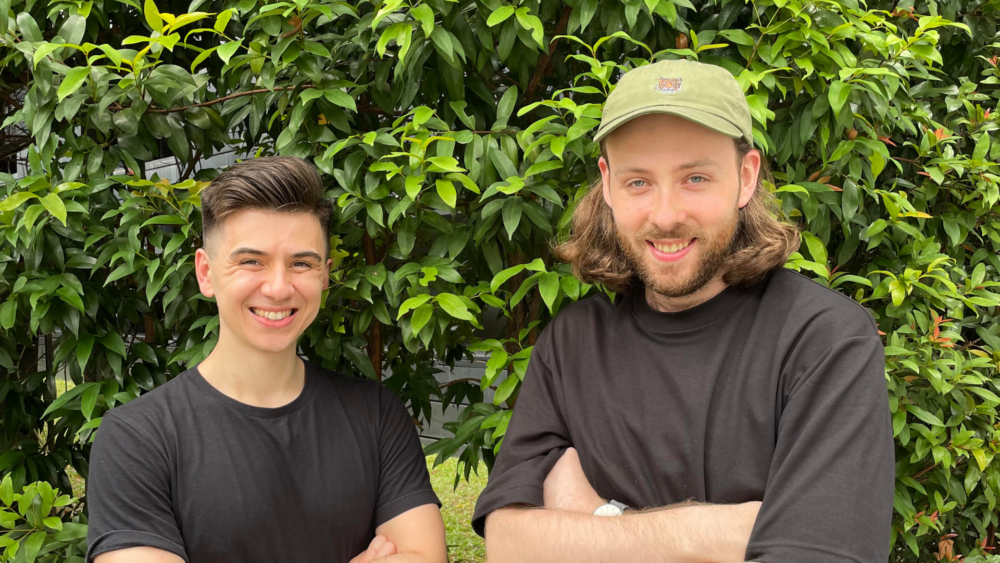With his start-up Faba Food, NUS Business School alumnus Alex Sheldon (MBA 2020) wants to show that tasty plant-based meals can be a daily option.
Q: What prompted you to start Faba Food?
I started Faba Food with a desire to make the food industry more sustainable. I have worked in various roles in the food industry throughout my career, and I also have a deep personal passion for food. When we look at the long-term impact of climate change, it is evident that we need to move on to more sustainable forms of consumption. Part of that is reducing our meat and dairy consumption, as these are some of the most carbon-emitting industries in the world.
Many fascinating food technologies are being developed to address these problems, and I have great respect for the scientists and business leaders who are heading these companies. I think that there are a lot of great products being produced (Impossible Foods always surprises me with their new products!), but I feel that there is a gap in the market for nutritious meat alternatives that people want to consume daily. Faba Food was created as part of the wave and as a response to the alternative protein trend in the food industry.
Q: How has the market response been thus far?
We’ve had a great response from customers. Many people seek healthy and nutritious food but do not know where to begin; either they do not know how to cook it, or they are so busy that they default to whatever they can find on the delivery apps.
We’ll be honest. When we first launched, there was some trepidation from some consumers. They were apprehensive not only about the fact that our food was plant-based or vegan but also the fact that it was frozen! When consumers tried our food, they found that they had some great food that was nutritious and convenient.
We recently took in customer feedback to make two new dishes, our Japanese Protein Bowl and Tuscan Bowl. We made these dishes extremely balanced in terms of protein, fats and carbohydrates. The Japanese Protein Bowl has over 30g of protein, mostly from Singapore-made Tempeh, and features pickled carrots, steamed broccoli, pumpkin puree, and sesame-coated edamame over a bed of quinoa. This focus on nutrition has made this dish one of our top sellers; we can’t make enough!

Alex Sheldon (left) with his co-founder Sean Hyatt.
Q: How do you see the company contributing to “eating sustainably”?
When thinking about how to eat sustainably, you must think holistically across the entire product experience and the supply chain. For example, a plant-based product is more sustainable than an equivalent animal-based product, but if the product has ingredients sourced from places that require lengthy shipping or air freight, or uses a large amount of single-use packaging, then the sustainability argument is all for nought.
Faba contributes to eating sustainably in different ways. First and foremost, we produce entirely plant-based food, which is unquestionably a more sustainable form of eating when looking at carbon output and consumed resources.
Secondly, all our food is frozen, which means it does not require daily delivery to consumers. That way, we can flexibly adjust our production cycles and consolidate deliveries to reduce carbon emissions.
Finally, our packaging materials are either made from recycled materials or can be reused. An example is the insulation we use to help keep meals frozen for delivery—it is made from recycled clothing offcuts that have been repurposed. We also run a scheme where we collect the insulation from frequent customers and reuse it in future deliveries.
Q: How has NUS Business School impacted your entrepreneurship and sustainability journey?
NUS Business School has helped me in several ways. I was lucky enough to learn Venture Capital and Entrepreneurship from Assistant Professor Ng Weiyi and Adjunct Professor Virginia Cha respectively. Both classes taught me that the most important part of starting a company is having a clear strategic plan in mind and that the best way to succeed is to get stuck in and just make things happen. The lessons have certainly stuck with me when I speak with prospective investors.
The knowledge I gained from The NUS MBA has helped me in optimising my business’ supply chain that spreads across different Asian regions and contexts. In the last six months, I had to refer to some of my NUS notes on import regulations so that I could import more sustainable goods into Singapore.
Q: What is your future plan for the company? Any last comments?
In the immediate future, we are looking to expand our product lines with additional mains, sides, and desserts. We are very excited to delight more consumers with new offerings.
In the long term, we want to expand across Southeast Asia and East Asia, as well as establish partnerships with other food companies looking for applications of their food technology.
My final word would be to try our food! You can ignore what we say and just try the food because it is that good!




